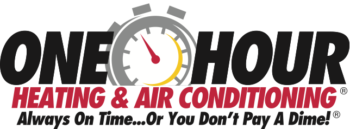As the summer heat intensifies, a reliable air conditioner becomes a cherished asset for homeowners seeking respite from soaring temperatures. However, even the most well-maintained air conditioning systems can encounter issues over time, requiring prompt and efficient repairs. In this comprehensive guide, we will explore common residential air conditioner problems and offer practical solutions to keep your cooling system in optimal condition.
- Understanding Common Air Conditioner Problems
a. Insufficient Cooling: If your air conditioner fails to cool your home adequately, several factors may be at play, such as a dirty air filter, blocked vents, refrigerant leaks, or a malfunctioning compressor. Identifying the underlying cause is crucial for effective repairs.
b. Strange Noises: Unusual sounds emitted by your air conditioner, such as rattling, buzzing, or screeching, could indicate loose components, damaged fan blades, or a malfunctioning motor. Ignoring these noises may exacerbate the problem and lead to costly repairs.
c. Frequent Cycling: When an air conditioner constantly turns on and off, it is experiencing frequent cycling. This issue may be caused by a faulty thermostat, dirty condenser coils, or an improperly sized system. Addressing this problem promptly will prevent excessive wear and tear on the unit.
d. Water Leaks: Moisture or water pooling around your air conditioning unit signifies a potential problem. It could indicate a clogged condensate drain, a damaged drain pan, or a refrigerant leak. These issues need immediate attention to prevent water damage and maintain the efficiency of your system.
- Troubleshooting and DIY Fixes
Before contacting a professional technician, there are a few troubleshooting steps you can take to potentially resolve minor air conditioner issues:
a. Check and clean the air filter: A dirty filter restricts airflow, reducing cooling efficiency. Regularly cleaning or replacing the filter can improve performance.
b. Inspect and clear the condenser unit: Ensure there are no debris, leaves, or obstructions around the outdoor condenser unit, as this can hinder airflow and cause inefficiency.
c. Reset the thermostat: Sometimes, a simple reset can resolve thermostat-related issues. Refer to the manufacturer’s instructions for the appropriate steps.
d. Verify power supply and circuit breaker: Ensure that the air conditioner is receiving power and check the circuit breaker to rule out any electrical issues.
- When to Seek Professional Assistance
While some minor air conditioner problems can be addressed through troubleshooting, certain issues require professional expertise. Consider contacting a certified HVAC technician if you encounter the following:
a. Refrigerant leaks: Handling refrigerant requires specialized knowledge and equipment. Professional technicians can identify and repair leaks while adhering to environmental regulations.
b. Compressor malfunctions: The compressor is a vital component of an air conditioner, and its repair or replacement should be handled by trained professionals.
c. Electrical problems: Faulty wiring or electrical issues pose a safety hazard. Qualified technicians can diagnose and resolve electrical problems to ensure the system operates safely.
d. Complex mechanical repairs: If your air conditioner requires intricate mechanical repairs or component replacements, it is advisable to seek professional assistance to prevent further damage.
Regular Maintenance is Your Best Protection Against Air Conditioner Problems
Regular maintenance and prompt repairs are essential for maintaining the performance and longevity of your residential air conditioner. By understanding common problems and implementing troubleshooting steps when appropriate, you can address minor issues and potentially avoid costly repairs. However, it’s crucial to recognize the limits of your DIY abilities and seek professional assistance for complex problems. Remember, a well-functioning air conditioner not only keeps you cool and comfortable but also enhances energy efficiency and reduces utility costs during the hot summer months.
